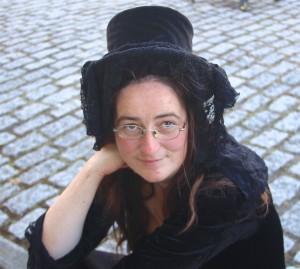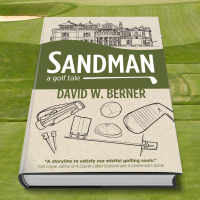
By Nimue Brown
 I spend a fair bit of my life being an author, but far more of it as a reader. I read a lot of older fiction and one of the reasons for this is that I love the voices of less contemporary
authors. I love the adjectives and adverbs, the shockingly wonderfully excitedly words that get stripped out of modern writing. I love dialogue tags that are allowed to be more interesting than ‘he
said’. I like narrators with godlike powers of oversight, and narrators who wander around between the heads of characters giving you snapshots of what different people are thinking and feeling. I
like long passages of description and deep introspection.
I spend a fair bit of my life being an author, but far more of it as a reader. I read a lot of older fiction and one of the reasons for this is that I love the voices of less contemporary
authors. I love the adjectives and adverbs, the shockingly wonderfully excitedly words that get stripped out of modern writing. I love dialogue tags that are allowed to be more interesting than ‘he
said’. I like narrators with godlike powers of oversight, and narrators who wander around between the heads of characters giving you snapshots of what different people are thinking and feeling. I
like long passages of description and deep introspection.
All of these things break the ‘rules’ many modern editors tend to impose on authors.
It seems to me that the definition of ‘good’ writing takes us into a fashion for the thin and terse. We are to assume the reader has the attention span of a three year old on amphetamines. They are to be given fast moving dialogue full of action based tags. No one is allowed to stop and think or take a paragraph to wallow in a landscape. As a reader, I enjoy more passive turns of phrase in the mix. Sometimes I like to be told rather than shown. I do not need everything to be immediate and right in my face.
I find a lot of modern, mainstream fiction thin. Bland. Samey.
I like distinctive author voices, but if authors are going to be distinct, you’ve got to let them have their own voice rather than edit them into total conformity with the ‘house style’. You’ve got to let them break the rules when they’re doing something cool. This is how new stuff is made. Every great and famous author you might care to name got to be great and famous by doing something new. Something different. If those who follow are only allowed to emulate, fiction is dead.
At the moment, much of the most innovative writing is coming out of self publishing and small houses, where there is more willingness to break the rules. Tell a story than doesn’t fit the agreed shape. Use a voice that isn’t straight out of ‘how to write a best seller’ guidelines. At the same time, some of my most restrictive and frustrating experiences of being edited have also been with small houses – where the desire to be taken seriously and prove you have a ‘good product’ leaves too many editors trying to homogenise their authors. (Sometimes that will mean editing out the long, curious and archaic words and swapping in more familiar ones, and god help you if your narrator makes a knowing aside to the reader, and as for this ludicrously long, rambling sentence in brackets with more than one concept in it, that clearly has to go.)
A conventional modern publishing house would never print a new author who wrote in similar ways to George Eliot, or Mervyn Peake. We are the poorer as a consequence. Here at CI, at least, authors are allowed their own voices, assuming they have survived the battering of other editors and the relentless piling on of ‘rules’ that are designed to limit us to the current fads.
Categories:
0 comments on this article







